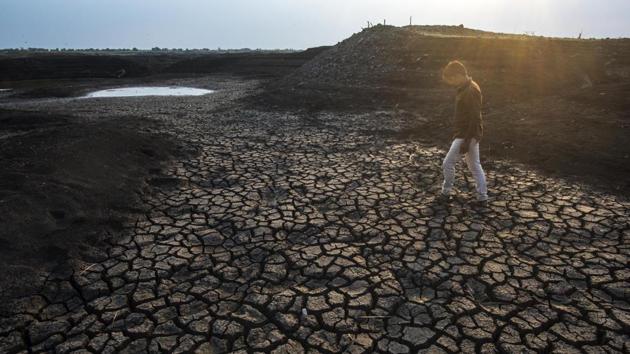Drought relief tops Niti aayog meeting agenda
The meeting comes at a time when several parts of India are battling a drought-like situation and reeling under a severe heatwave.
Niti Aayog, the Indian government’s policy think tank, will deliberate on critical issues including the prevailing drought situation in some states and possible relief measures, as part of a five-point agenda drawn up for its fifth governing council meeting on June 15, two government functionaries familiar with the matter said.

The meeting, chaired by Prime Minister Narendra Modi, will include a number of chief ministers across the country, senior Union ministers, and members of the body that in 2014 replaced the Planning Commission. Among the notable absentees will be West Bengal chief minister Mamata Banerjee, who last week described the meeting as a “fruitless” exercise.
The meeting comes at a time when several parts of India are battling a drought-like situation and reeling under a severe heatwave.
Also read: What Prashant Kishor told JD(U) at party meet about helping Mamata Banerjee
According to the India Meteorological Department (IMD), the country received 99mm of pre-monsoon rain between March 1 and May 31 - a deficiency of 25%. IMD’s rain reports show that Andhra Pradesh, Bihar, Gujarat, Jharkhand, Karnataka, Maharashtra, parts of the North-east, Rajasthan, Tamil Nadu and Telangana are badly hit, and more than 500 million people likely to face the impact. The pre-monsoon rainfall in India this year is the second lowest in 65 years, private weather forecaster Skymet Weather said last week.
“The government is serious about the situation, and PM Modi wants states and centre to join hands to tackle this problem,” said one of the people cited above who asked not to be named.
Broadly, the five items on the agenda are defined as drought and relief; rainwater harvesting; aspirational district programme; transforming agriculture; and security situation in districts affected by Left-wing extremism (LWE).
The second person cited above said that one of the key focus areas of the meeting will be how to transform agriculture through structural reforms, with special emphasis on the Agriculture Produce Market Committee (APMC) Act and Essential Commodities Act.
The Centre last year reworked the model contract farming law that seeks to free direct deals between businesses and farmers from the oversight of APMCs. Conceived in the 1960s, APMC regulations require farmers to sell to licenced middlemen only in notified markets, usually in the same area as the farmer, rather than directly to buyers elsewhere.
The governing council of Niti Aayog will also deliberate on the achievements and challenges with regard to the aspirational districts programme, the second leader said.
Also read: ‘Rape of minor is rape, but rape of married woman...’ : UP Minister’s shocker
The programme aims at transforming these districts through a convergence of central and state schemes with collaboration between the state “prabhari” (coordinator appointed by the Centre) and district collectors. With states as the main drivers, the programme focuses on the strength of each district -- identifying low-hanging fruits that can be targeted for immediate improvement -- apart from measuring progress and ranking the districts.
This programme’s core areas of attention are health and nutrition, education, agriculture and water resources, financial inclusion and skill development, and basic infrastructure.
The Prime Minister will also discuss security-related issues, with a specific focus on districts affected by Left Wing Extremism (LWE), according to the second leader. A Niti Ayog report last January said India had 106 LWE-affected districts, spread across 10 states, and classified 35 as worst affected.
Experts says the new government is preparing for some serious challenges and the meeting of the Niti Aayog reflects that the Centre is aware of the gravity of the situation. “While a widespread drought is an immediate challenge for the government, it needs a long-term solution to address farm distress. Niti Aayog meetings should not be limited to just discussion , and, instead, should find solutions to recurring problems,” Sidharth Mishra, president of the Centre for Reforms, Development and Justice, said.






